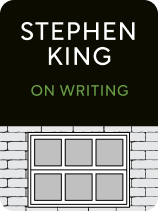

This article is an excerpt from the Shortform summary of "On Writing" by Stephen King. Shortform has the world's best summaries of books you should be reading.
Like this article? Sign up for a free trial here .
Does Stephen King have writing tips on how to become a better writer? What advice does he give in his memoir On Writing: A Memoir of The Craft?
Stephen King’s writing tips can help you learn more about your own writing strategy and help you create your toolbox of writing skills.
Keep reading for the best Stephen King writing tips and advice.
Stephen King’s Writing Tips
These Stephen King writing tips can help you learn how to become a better writer and produce quality work.
Read a Lot
One of Stephen King’s top writing tips is to read a lot. To be a good writer, you need to recognize what good and bad writing is. Reading exposes you to good and bad writing. The more you read, the more you learn. Stephen King always carries a book with him so he can read whether he’s waiting at the grocery or sitting front-row at a Red Sox game.
Often the bad writing is more instructive than the good writing. It teaches you what not to do—what’s cliche, how characters act unrealistically, how writers ruin the pacing with plodding description. It could even be inspirational—if you think a bestseller is terribly written, then you might start thinking you could easily do better.
Through thousands of hours of reading, you sharpen the tools in your toolkit. You absorb other people’s writing rhythm, how they develop their characters and plot, and how they wield language. You take what you like and forge your own style.
Write a Lot
Another one of Stephen King’s writing tips is to write a lot. King is famously prolific: He writes ten pages a day, or 2,000 words. Every three months he produces about 900 pages, a good-sized novel. He dedicates his morning to writing time, and he doesn’t move on with the rest of his day until he finishes his writing goal.
If you’re a new writer, here’s how to get started:
- Set a habit: define your writing location and carve out a daily time when you’ll be writing.
- During that time, shut your door and remove all distractions. You should get lost in your own world.
- Set your daily goal low and achievable. He suggests 1,000 words a day. Until you meet this goal each day, your door stays shut.
- Take no more than one day off a week. Keep up the momentum when writing to prevent the self-doubt from creeping in.
Writing Mechanics
A writer is an artisan who has a number of tools in her toolbox available for use—diction, grammar, phrasing. You likely already have these tools, so don’t worry that you don’t understand them well enough to be a writer. For dependable guidelines, look to The Elements of Style by Strunk and White.
King does single out two of his pet peeves—passive tense and adverbs.
Avoid Passive Tense
Passive tense arranges words so that things are done to subjects. “The car was started by the driver.” “The discovery was announced with great fanfare.” “The meeting is scheduled for seven.”
All of these sentences sound weak. In active tense, the subject does the action. “The driver started the car.” “The grandmaster announced the discovery with great fanfare.” “The meeting’s at seven.” Don’t these sentences feel better?
This is common enough advice, but why do writers still use passive voice? Because it’s safe. Passive voice avoids the need to assert a subject doing a deliberate action. Passive voice is the refuge of timid, uncertain writers.
Avoid Adverbs

———End of Preview———
Like what you just read? Read the rest of the world's best summary of Stephen King's "On Writing" at Shortform .
Here's what you'll find in our full On Writing summary :
- Stephen King's personal writing habits that led to superstar books like Misery and It
- How to make a story and characters feel real
- Why you should never use adverbs






